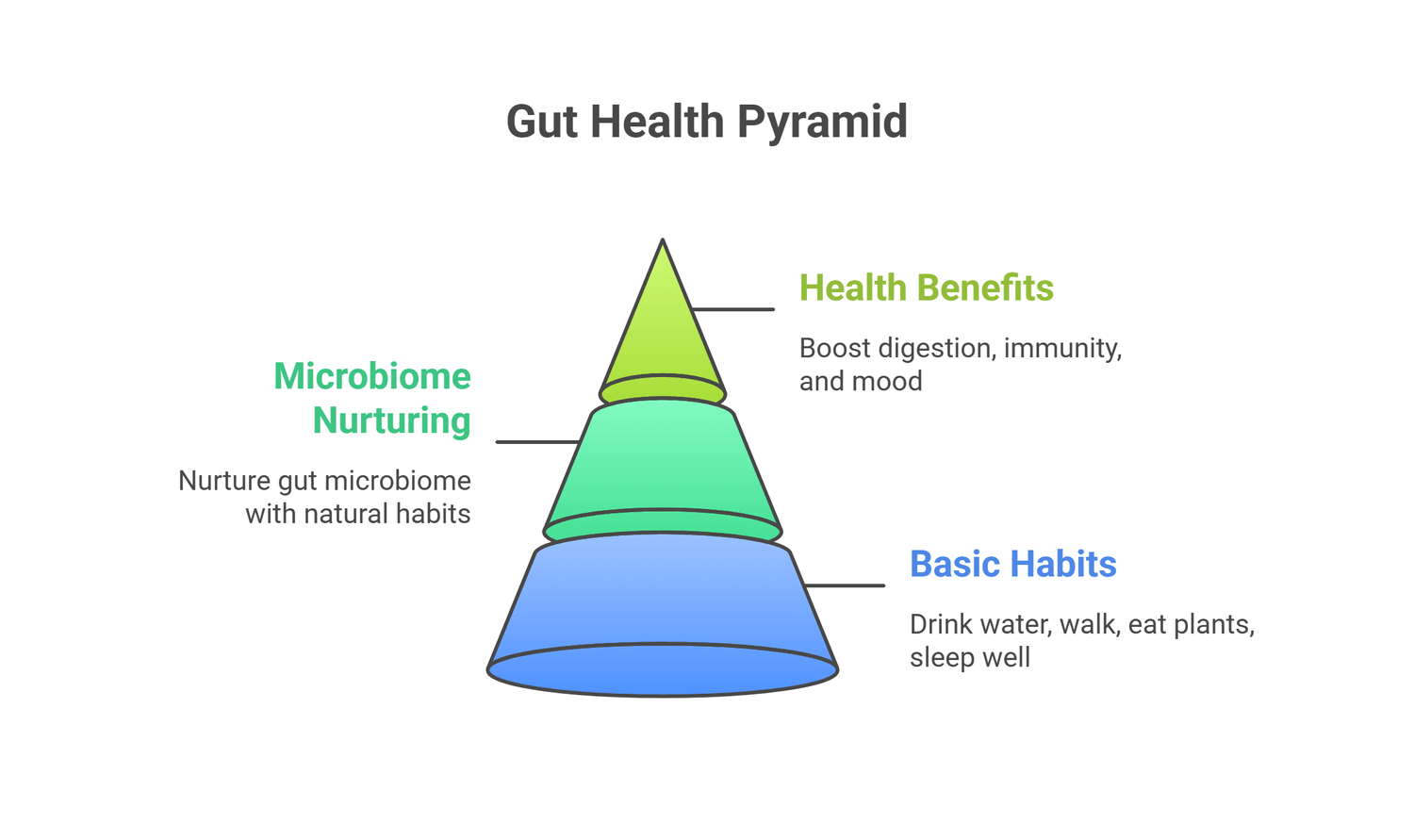
Gut Health and the Microbiome: The Key to Better Digestion, Immunity, and Mood
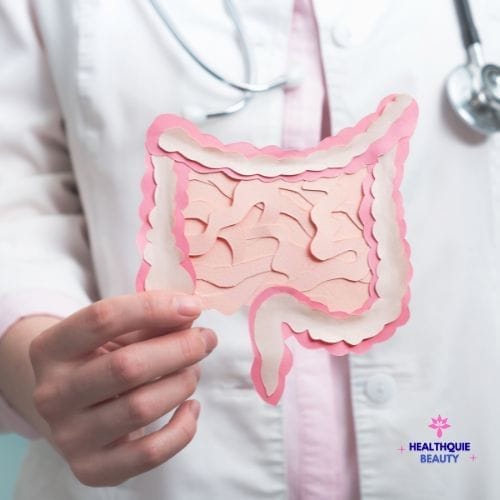
Gut Health & the Microbiome
A Simple Guide to Wellness
Introduction
1.Why Your Gut Matters More Than You Think
Your gut isn’t just about digestion—it’s the powerhouse of your overall well-being. A healthy gut microbiome (the community of bacteria residing in your digestive tract) plays a key role in:
Strengthening immunity
Improving digestion and nutrient absorption
Supporting mental health and mood regulation
Reducing chronic disease risk (like heart disease, diabetes, and some cancers)
Regulating sleep, energy, and hormonal balance
The good news? Small, natural changes can make a big impact.
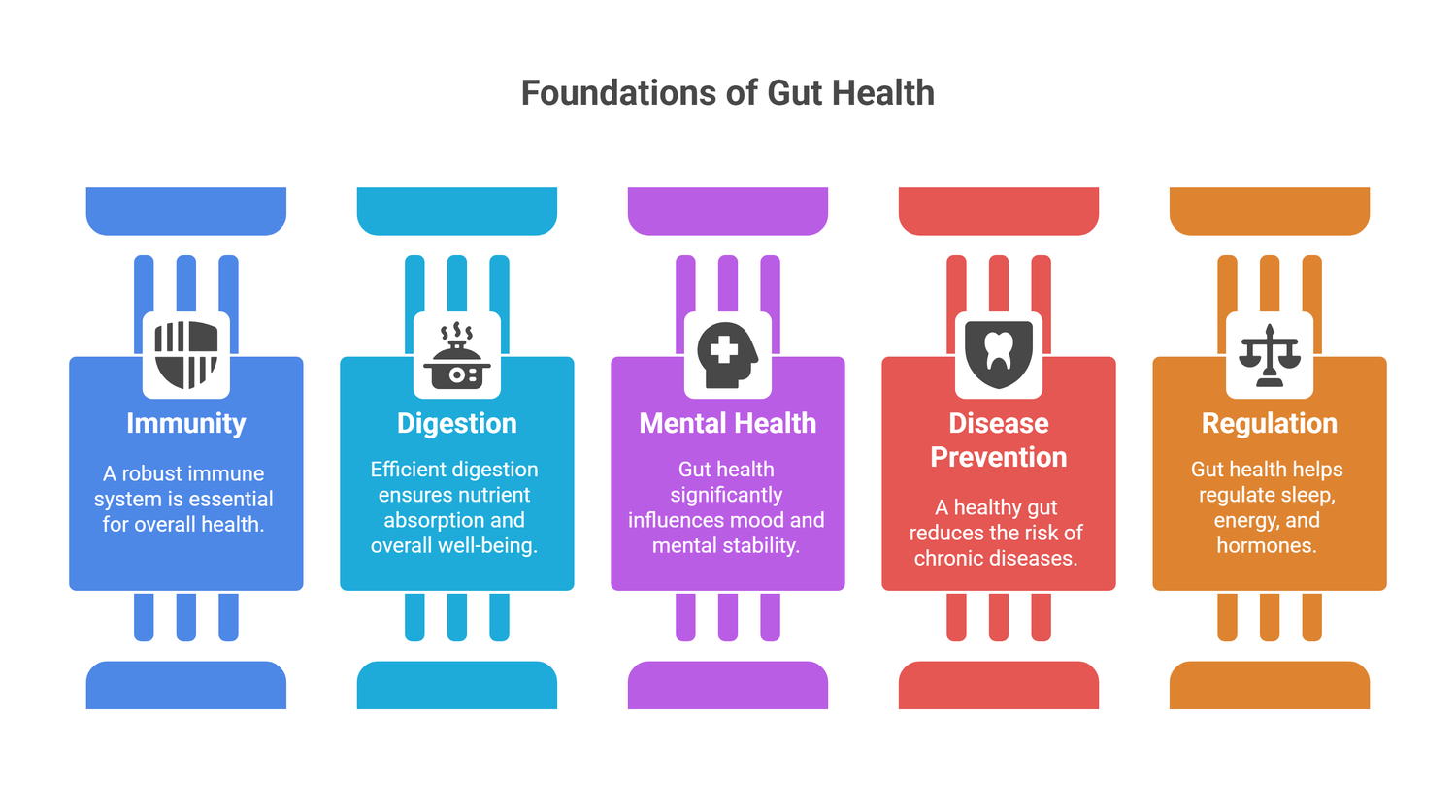
2. Spotting Signs of an Unhealthy Gut
Recognizing when your gut needs help is straightforward. Watch for:
Bloating, constipation, gas, diarrhea, heartburn
Low energy and frequent fatigue
Mood swings, sleep disturbances, persistent infections
Food sensitivities and slow recovery
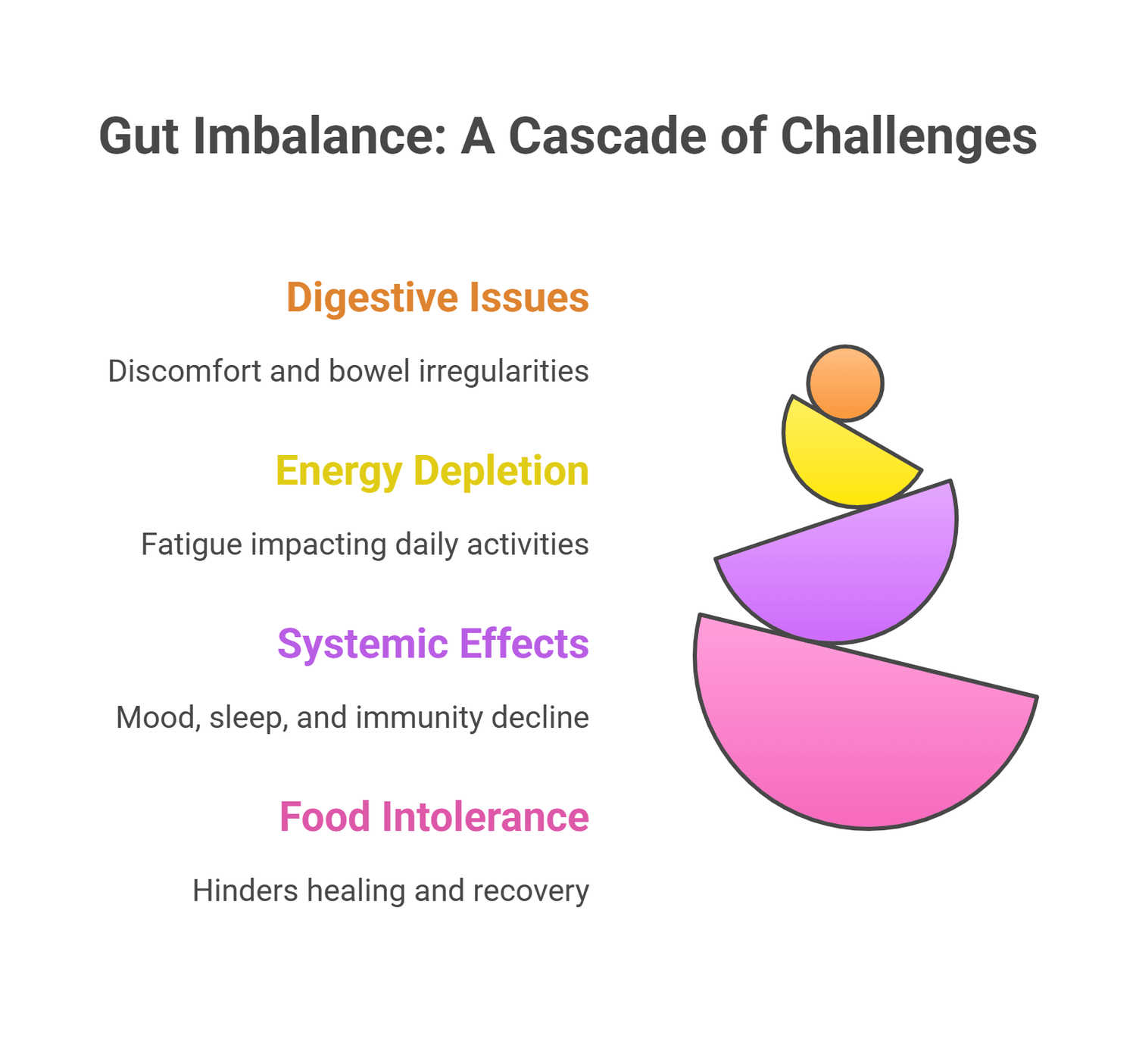
3. Science-Based Habits for a Happy Gut
A. Eat a Spectrum of Plant Foods Weekly
Diversity is the secret to a flourishing gut microbiome. Studies suggest eating 30 different plant foods per week—which boosts gut bacteria variety and supports digestion, immunity, and overall health.
B. Feed Your Gut with Prebiotics
Prebiotics are fibers that nourish beneficial bacteria. Include foods like garlic, onions, asparagus, oats, legumes, apples, bananas, and chicory root. These help friendly microbes like Bifidobacteria and Lactobacilli thrive and produce helpful substances like short-chain fatty acids (SCFAs).
C. Add Fermented Foods for Natural Probiotics
Fermented foods bring live, gut-friendly bacteria into your system. Yogurt, kefir, sauerkraut, kimchi, miso, tempeh, and kombucha are all excellent options. They improve microbial diversity and support gut lining health.
D. Embrace Polyphenol-Rich, Anti-Inflammatory Foods
Polyphenols (natural plant antioxidants) help reduce inflammation and feed beneficial gut bacteria. Colorful vegetables, berries, tea, coffee, herbs, spices, and dark chocolate are wonderful sources.
E. Reduce Ultra-Processed Foods
Ultra-processed foods—loaded with additives, sugars, and unhealthy fats—disturb your gut’s bacterial balance and increase inflammation. Focus on whole, fresh foods instead.
F. Stay Hydrated
Water not only aids digestion and prevents constipation but also supports gut lining health and microbial balance.
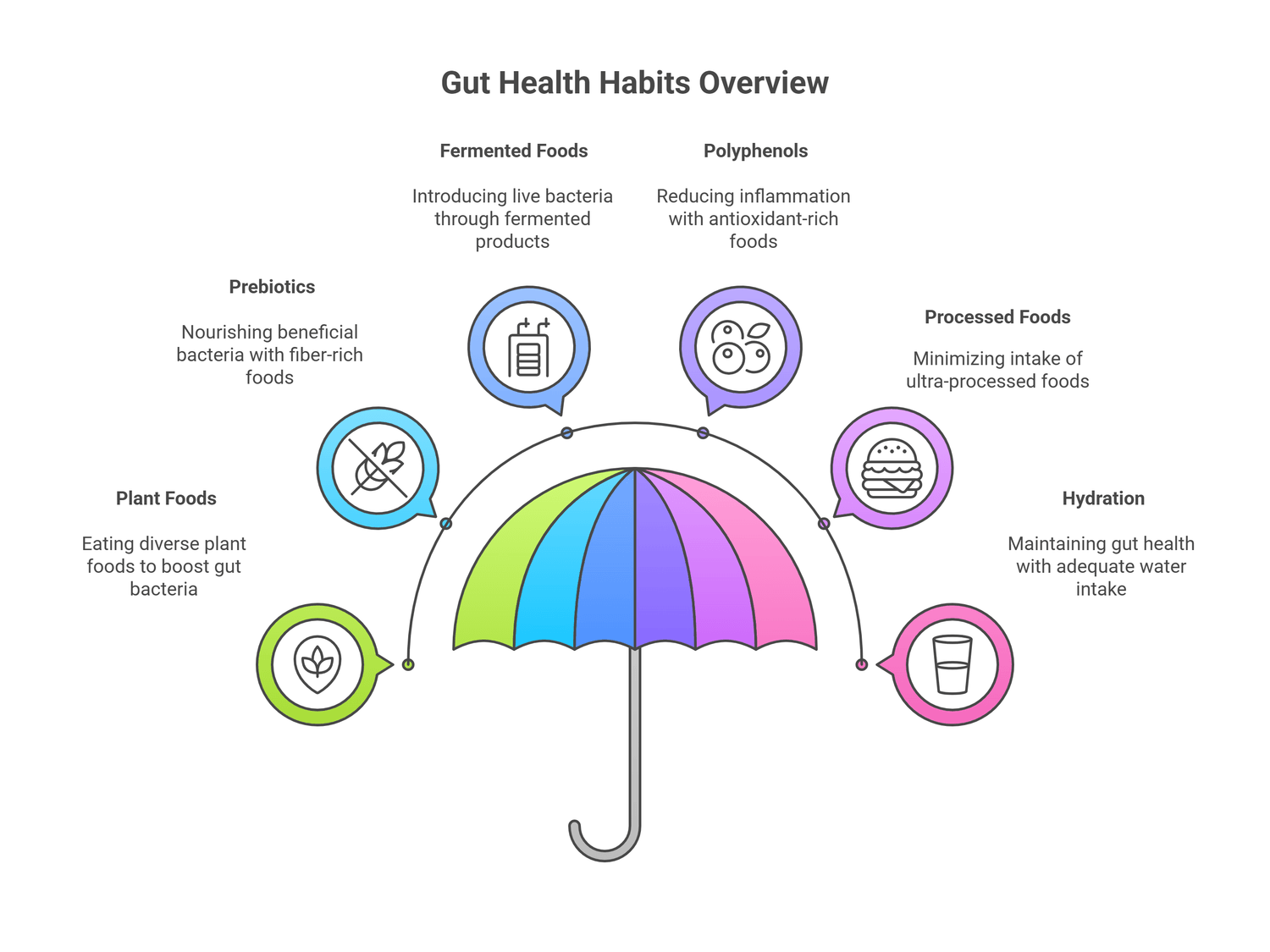
4. Lifestyle Pillars for Gut Health
A. Move Regularly
Moderate physical activity—like walking, swimming, or cycling—increases gut bacteria diversity and supports digestion.
B. Sleep Well and Manage Stress
Your gut and brain are tightly connected. Poor sleep and chronic stress can disrupt gut health. Aim for 7–9 hours of quality sleep each night, and incorporate stress-busting practices like mindfulness, yoga, or nature walks into your routine.
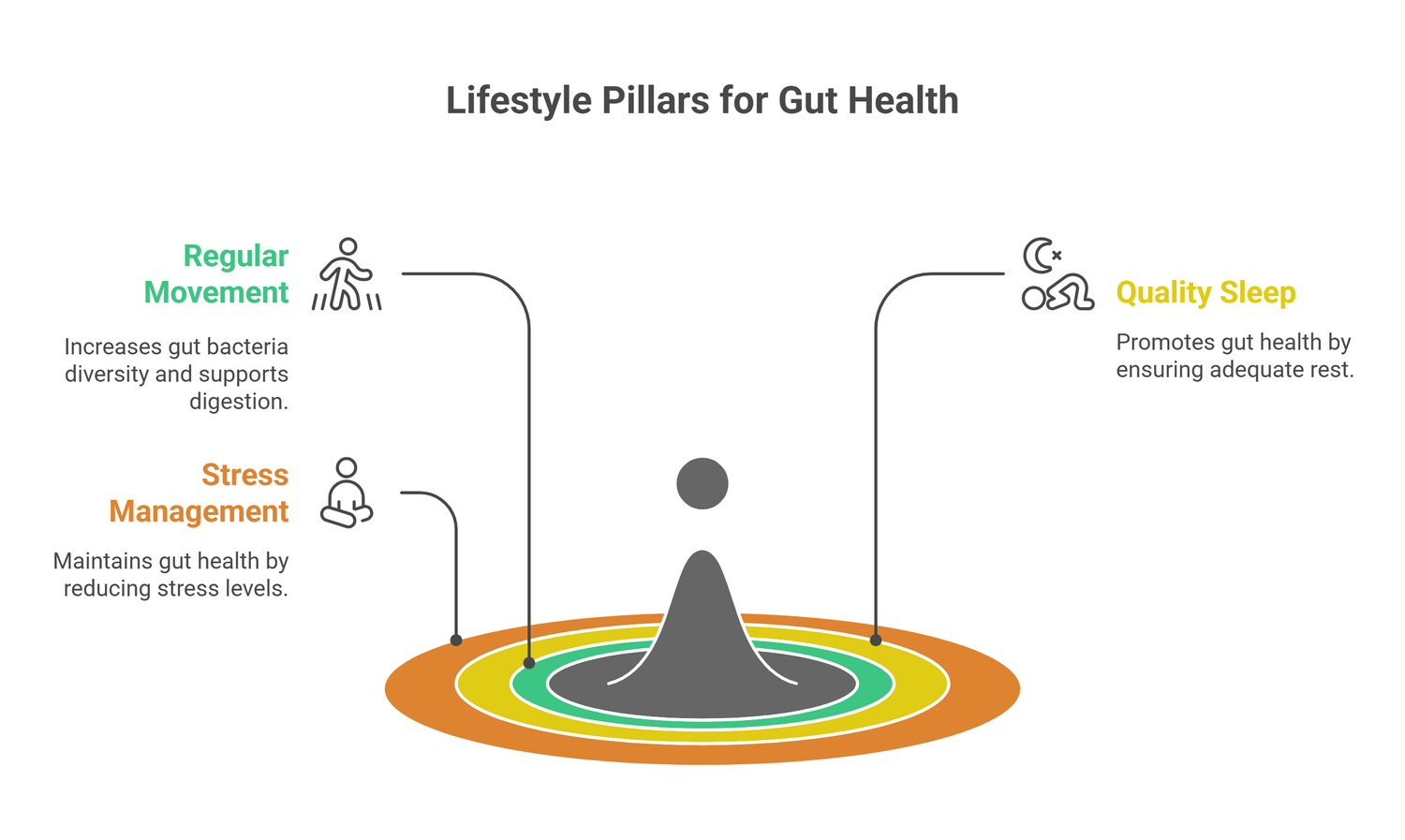
5. Gut, Mood & the Growing Science of
the Gut–Brain Axis
The gut sends signals to your brain via the gut–brain axis, influencing mood, stress, and mental health. Emerging research suggests that:
Probiotic-rich foods and certain strains—sometimes called “psychobiotics”—may help alleviate anxiety and improve sleep.
Following anti-inflammatory diets like the Mediterranean diet supports both mental health and gut balance.

6. Smart Tips After Antibiotics
Antibiotics can disrupt the gut’s good bacteria—sometimes for months. Restore balance with:
Probiotic foods like yogurt, kefir, and fermented vegetables
Prebiotic-rich foods to feed recovering bacteria
Polyphenol-rich options like berries and green tea

7. Easy Everyday Actions to Start Today
Try a “Diversity Jar”—a mix of nuts, seeds, herbs, and grains added to meals—to increase plant variety and fiber in your diet.
Incorporate more gut-nourishing seeds like flax, chia, pumpkin, sesame, and fennel to ease symptoms like bloating or constipation.
Include wild blueberries in smoothies or snacks for both gut and anti-inflammatory benefits.
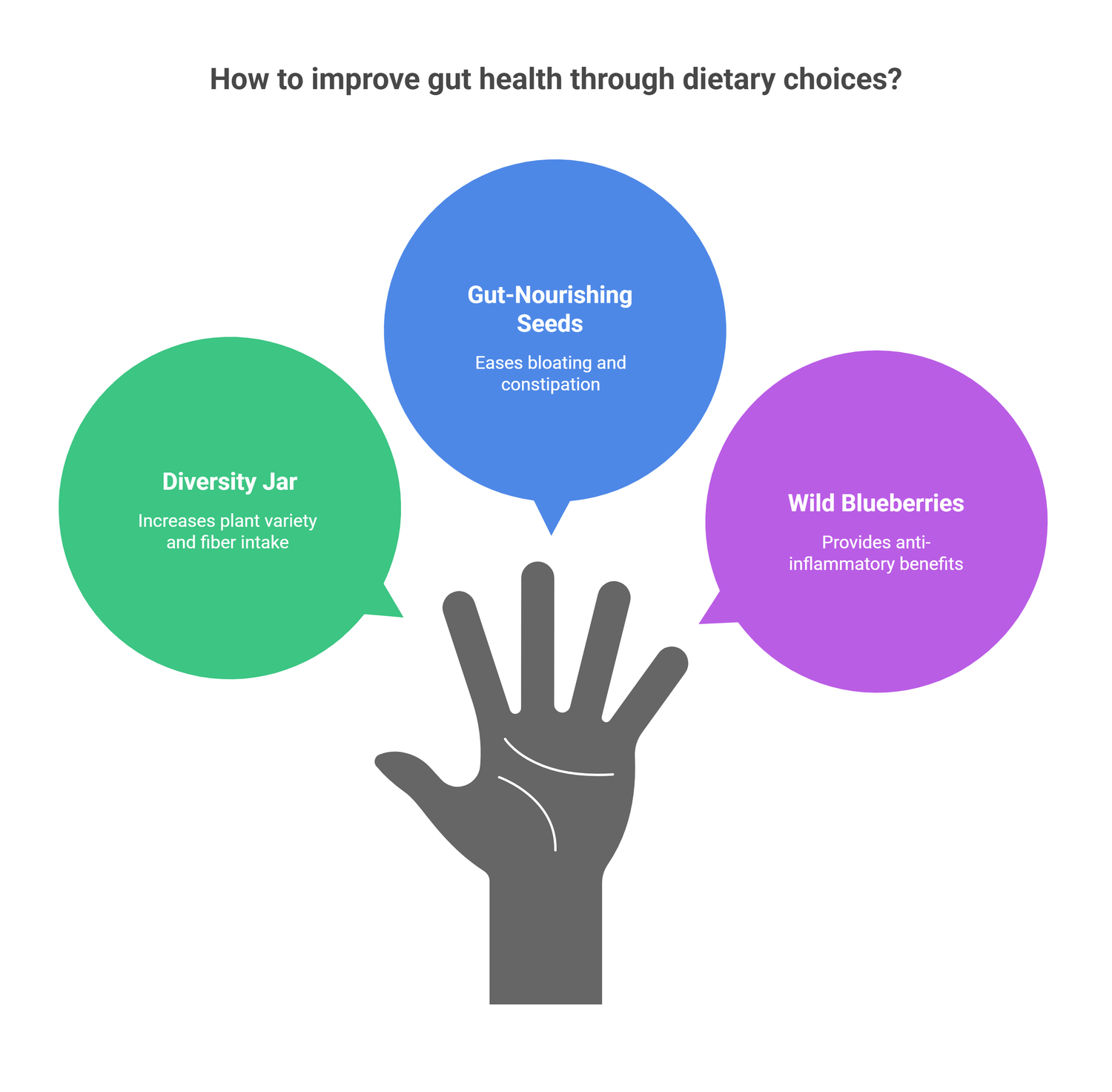
8. A Simple Weekly Gut Routine
Daily : Hydrate, eat diverse plants, fermented foods, and polyphenols
Every Meal : Add fiber, chew mindfully, and eat at regular times
Weekly : Move regularly, manage stress, and ensure good sleep
After Antibiotics : Focus on probiotics and prebiotics to restore balance
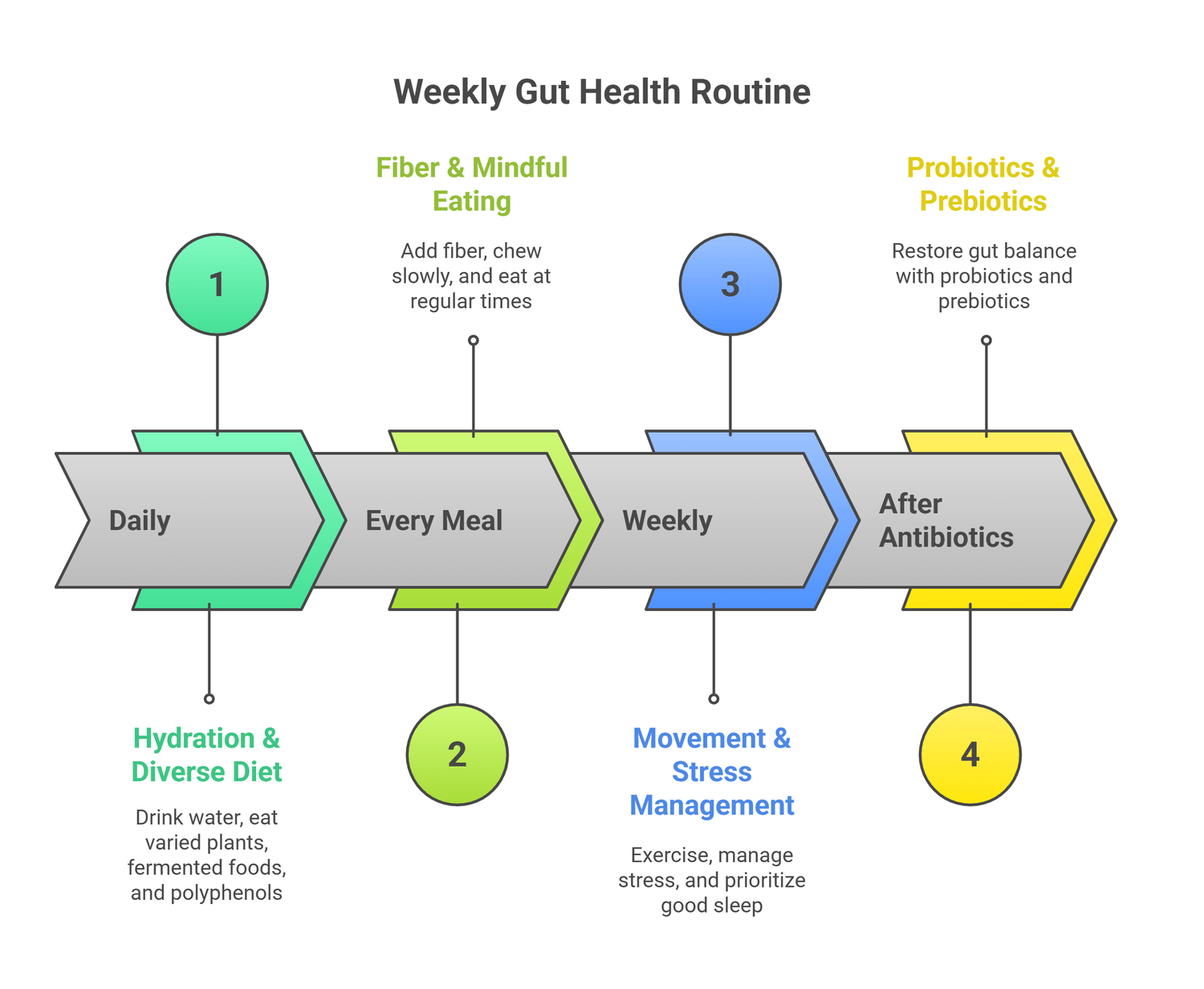
Conclusion: Small Steps, Big Changes
Supporting your gut's health doesn’t require drastic steps. Start small—drink water, walk, eat more plants, sleep well. Over time, these natural habits will nurture your microbiome, boost your digestion, fortify immunity, and even lift your mood.
